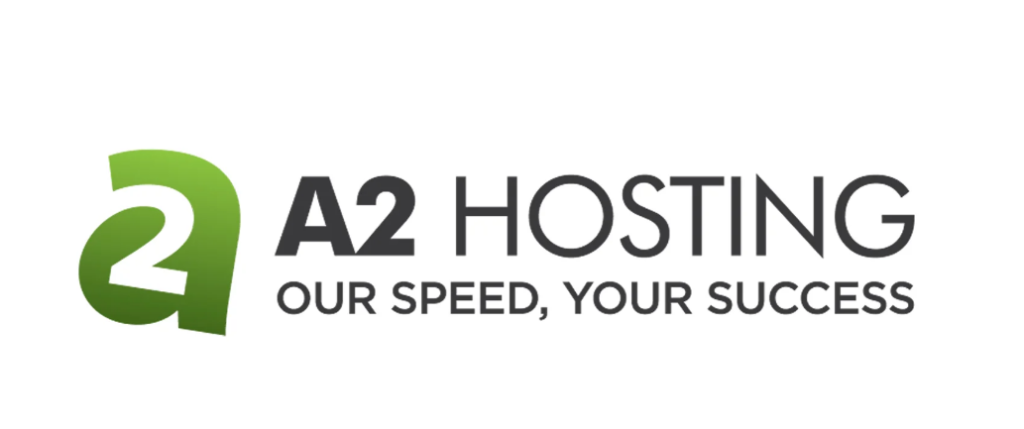When it comes to building a website, choosing the right web hosting provider can be crucial to your success. A web hosting provider is a service that allows you to store your website files and make them accessible to the world wide web. There are many web hosting providers to choose from, and each offers a different set of features and benefits. In this article, we will take a closer look at web hosting and review the top five providers in the industry.

Features, Pros & Cons:
To help you make an informed decision, we have compiled a list of the top 5 web hosting providers along with their features, pros, and cons in the table below.
| Web Hosting Provider | Features | Pros | Cons |
|---|---|---|---|
| Bluehost | One-click WordPress installation, 24/7 customer support, free domain name for the first year | Affordable pricing plans, beginner-friendly, reliable uptime | Site migrations not free |
| HostGator | Unlimited storage and bandwidth, free SSL certificate, 45-day money-back guarantee | Easy-to-use control panel, 24/7 customer support, reliable uptime | Higher renewal rates |
| A2 Hosting | Fast website loading speeds, free SSL certificate, 24/7 customer support | Anytime money-back guarantee, SSD storage, unlimited storage and bandwidth | High renewal rates |
| SiteGround | Free website builder, daily backups, 24/7 customer support | Fast website loading speeds, great uptime, user-friendly interface | Limited storage in some plans |
| Hostinger | Affordable pricing plans, unlimited storage and bandwidth, free domain name for the first year | Fast website loading speeds, user-friendly interface, free website builder | Limited resources in some plans |
BlueHost
Bluehost is a web hosting company that offers various hosting services such as shared hosting, VPS hosting, dedicated hosting, and WordPress hosting. Here are some pros and cons of Bluehost:

Pros:
- Easy to use: Bluehost has a user-friendly interface and comes with a simple, one-click installation process for popular website builders like WordPress.
- Affordable: Bluehost offers affordable plans for beginners and small businesses.
- Reliable uptime: Bluehost guarantees a 99.9% uptime, which means your website will be up and running most of the time.
- Good customer support: Bluehost has a knowledgeable support team that is available 24/7 via phone, chat, and email.
- Security: Bluehost offers SSL certificates and other security features to protect your website from hackers and malware.
Cons:
- Limited storage: Bluehost’s basic plan comes with limited storage, which may not be sufficient for large websites.
- Additional fees: Bluehost charges additional fees for domain name registration and website backups.
- Upselling: Bluehost may aggressively upsell its customers on additional services.
- Slow loading speed: Bluehost may be slower compared to other web hosting providers, which can negatively impact your website’s performance.
Overall, Bluehost is a good option for beginners and small businesses looking for affordable web hosting services. However, it may not be suitable for larger websites that require more storage and faster loading speeds.
HostGator
HostGator is a web hosting company that offers various hosting services such as shared hosting, VPS hosting, dedicated hosting, and WordPress hosting. Here are some pros and cons of HostGator:

Pros:
- Affordable: HostGator offers affordable plans for beginners and small businesses.
- User-friendly: HostGator has a user-friendly interface and comes with a simple, one-click installation process for popular website builders like WordPress.
- Reliable uptime: HostGator guarantees a 99.9% uptime, which means your website will be up and running most of the time.
- Good customer support: HostGator has a knowledgeable support team that is available 24/7 via phone, chat, and email.
- Unlimited storage and bandwidth: HostGator’s plans come with unlimited storage and bandwidth, which is suitable for larger websites.
Cons:
- Slow loading speed: HostGator may be slower compared to other web hosting providers, which can negatively impact your website’s performance.
- Limited resources: HostGator’s basic plans come with limited resources, which may not be sufficient for larger websites.
- Additional fees: HostGator charges additional fees for domain name registration and website backups.
- Upselling: HostGator may aggressively upsell its customers on additional services.
Overall, HostGator is a good option for beginners and small businesses looking for affordable web hosting services with unlimited storage and bandwidth. However, it may not be suitable for larger websites that require more resources and faster loading speeds.
A2 Hosting
A2 Hosting is a web hosting company that offers various hosting services such as shared hosting, VPS hosting, dedicated hosting, and WordPress hosting. Here are some pros and cons of A2 Hosting:

Pros:
- Fast loading speed: A2 Hosting is known for its fast loading speed, which can positively impact your website’s performance.
- Good customer support: A2 Hosting has a knowledgeable support team that is available 24/7 via phone, chat, and email.
- Reliable uptime: A2 Hosting guarantees a 99.9% uptime, which means your website will be up and running most of the time.
- Easy to use: A2 Hosting has a user-friendly interface and comes with a simple, one-click installation process for popular website builders like WordPress.
- Free website migration: A2 Hosting offers free website migration, which can save you time and effort.
Cons:
- Expensive: A2 Hosting’s plans are relatively more expensive compared to other web hosting providers.
- Limited storage: A2 Hosting’s basic plan comes with limited storage, which may not be sufficient for larger websites.
- Additional fees: A2 Hosting charges additional fees for domain name registration and website backups.
- Limited data centers: A2 Hosting has a limited number of data centers, which may not be suitable for customers located in certain regions.
Overall, A2 Hosting is a good option for customers who prioritize fast loading speeds and reliable uptime. However, it may not be suitable for customers who are on a tight budget or require more storage space.
SiteGround
SiteGround is a web hosting company that offers various hosting services such as shared hosting, cloud hosting, dedicated hosting, and WordPress hosting. Here are some pros and cons of SiteGround:

Pros:
- Fast loading speed: SiteGround is known for its fast loading speed, which can positively impact your website’s performance.
- Good customer support: SiteGround has a knowledgeable support team that is available 24/7 via phone, chat, and email.
- Reliable uptime: SiteGround guarantees a 99.9% uptime, which means your website will be up and running most of the time.
- Easy to use: SiteGround has a user-friendly interface and comes with a simple, one-click installation process for popular website builders like WordPress.
- Security: SiteGround offers advanced security features such as SSL certificates and daily backups to protect your website from hackers and malware.
Cons:
- Limited storage: SiteGround’s basic plan comes with limited storage, which may not be sufficient for larger websites.
- Expensive: SiteGround’s plans are relatively more expensive compared to other web hosting providers.
- Additional fees: SiteGround charges additional fees for domain name registration and website backups.
- Limited data centers: SiteGround has a limited number of data centers, which may not be suitable for customers located in certain regions.
Overall, SiteGround is a good option for customers who prioritize fast loading speeds, reliable uptime, and advanced security features. However, it may not be suitable for customers who are on a tight budget or require more storage space.
Hostinger
Hostinger is a web hosting company that offers various hosting services such as shared hosting, VPS hosting, cloud hosting, and WordPress hosting. Here are some pros and cons of Hostinger:

Pros:
- Affordable: Hostinger offers very affordable plans, making it an excellent choice for those on a tight budget.
- Fast loading speed: Hostinger is known for its fast loading speed, which can positively impact your website’s performance.
- Good customer support: Hostinger has a knowledgeable support team that is available 24/7 via phone, chat, and email.
- User-friendly: Hostinger has a user-friendly interface and comes with a simple, one-click installation process for popular website builders like WordPress.
- Reliable uptime: Hostinger guarantees a 99.9% uptime, which means your website will be up and running most of the time.
Cons:
- Limited resources: Hostinger’s basic plans come with limited resources, which may not be sufficient for larger websites.
- Limited data centers: Hostinger has a limited number of data centers, which may not be suitable for customers located in certain regions.
- Additional fees: Hostinger charges additional fees for domain name registration and website backups.
- No free website migration: Hostinger does not offer free website migration, which can be a disadvantage for those looking to switch to Hostinger from another hosting provider.
Overall, Hostinger is a good option for customers who prioritize affordability and fast loading speeds. However, it may not be suitable for customers who require more resources or need to host their website in a specific location.
Conclusion:
Choosing the right web hosting provider is crucial for the success of your website. Consider the features, pros, and cons of each provider before making a decision. Determine your budget and the specific needs of your website before selecting a hosting plan. We hope this list of the top 5 best web hosting providers helps you find the right hosting solution for your website.
